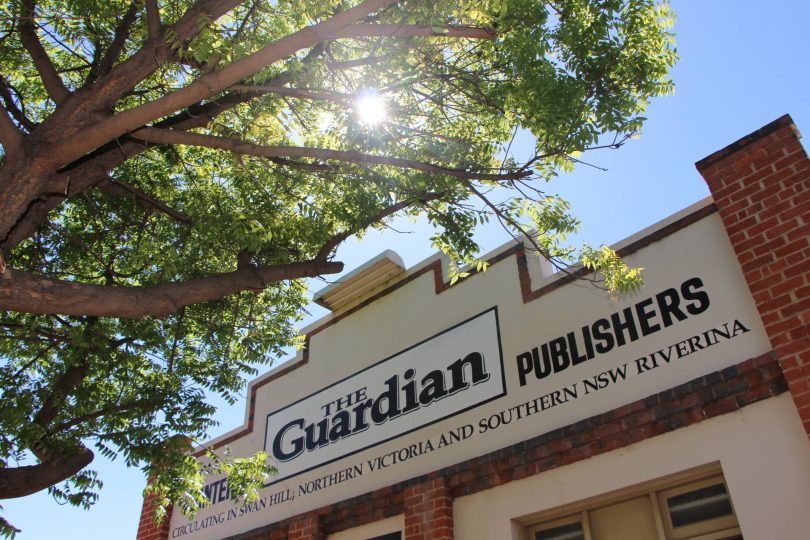In the time when Australians need access to reliable local news, stories and voices more than ever; we are losing them.
Since March 2020, hundreds of newspapers from across Australia have changed the way their outlets operate. From full newsroom shutdowns to online migration, Australians are losing their local papers, and with it, their local stories.
Journalists at @LV_Express have been stood down indefinitely, effective immediately. Paper will still be published, albeit a lot smaller, by skeleton staff. We are gutted. We love our jobs and our community. Regional journalism has been decimated by this. pic.twitter.com/QOcczQZ9GQ
— Kate Withers
(@katejwithers) March 27, 2020
PIJI, the Public Interest Journalism Initiative has tracked the changes to Australian news providers amidst the COVID-19 pandemic.
While regional newsrooms are closing or changing their business models, online news consumption is up for the biggest players in Australian media, with traffic increasing 57% for the top ten news websites for March.
Elliott Newspaper Group managing director Ross Lanyon recently told The Guardian that advertising accounted for 70% of their businesses revenue.

Swan Hill Guardian (Supplied: Facebook)
In Swan Hill, the local Elliott Newsgroup paper – The Swan Hill Guardian – has lost a significant amount of its income from advertisers as the local businesses shut up shop and have no need to advertise, forcing The Guardian to close its newsroom on March 27.
With Australia currently facing various stages of coronavirus restrictions, many small businesses have closed or moved to alternative business models to weather the loss of income until restrictions ease and everything is business as usual.
Swan Hill Mayor Cr Bill Moar stated that much of the Swan Hill Guardian’s advertising revenue traditionally came from agriculture, tourism and hospitality.

Mayor of Swan Hill Rural CIty Council – Bill Moar (Supplied: Facebook)
“Our agricultural base is still here and doing well and will continue to advertise, however, what got it over the line was our tourism and hospitality, pubs and clubs, they’d take out quite extensive advertising.”
Swan Hill Guardian editor, Pete Bannon said the paper had lost significant revenue from their tourism and hospitality industries specifically and that was unlikely to change until restrictions eased.
“Your cafes, your restaurants, your pubs, they’re all closed and they’re not going to advertise if they can’t get people in the door.”
The Swan Hill Guardian has printed three papers a week since 1888, Monday, Wednesday, and Friday, with the Friday paper being the most popular.
Bannon said that before the coronavirus, the Swan Hill Guardian had only ever missed one paper in over 130 years, due to a major power outage in 2016.
The Swan Hill Guardian stopped printing in March and were told that the shutdown would last at least six months, based on a government timeline of Australia returning to normal.
Bannon said the first response from staff was a concern for the community rather than themselves.
“Our first reaction was just disappointment for the community, we want to keep the community informed with reliable community news.”
“The community had no real trusted source of news at a time of a pandemic where they needed their news.”
Since the introduction of the Australian Government’s Job Keeper payment, The Guardian has resumed print once a week for a Friday paper to the delight of locals since May 1st.
Bannon noted that staff wages were one of the newspaper’s biggest expenses.
“Without Job Keeper there’s just no way that the newspaper would have been able to last.”
When asked about what would happen to the paper after the Job Keeper payment ends in late September Cr Moar said the community “didn’t want to think about that right now”.
“We’re hoping that by the time Job Keeper is turned off, the pubs and clubs will be back operating again.”
The Swan Hill Guardian has taken to an online format in between Friday publications to keep the community informed about local issues, however, they were having issues reaching the older residents.
Bannon believes that “online is the future” but knows that some demographics in the regional communities haven’t adapted well to the changes.
“We were publishing stories online, but our demographic like to head down to the newsagency and café and open a physical paper.”
Cr Moar thinks that the transition to online will be harder for the older generations who have never had to know life in Swan Hill without the local paper.
“The Guardian has been here their entire life and has been part of their way of life for that generation, it’s been their go-to means of communication for a long time.”
While the tech-savvy residents are keeping up to date with local issues via social media and national issues through major online media, the older generation is being left stranded in a news desert.
Are we all now realising the massive implications of losing local and regional papers? https://t.co/om3jWkszhe
— Saffron Howden (@saffronhowden) May 3, 2020
The digital divide occurring between younger and older residents in Swan Hill is not an isolated experience, studies have found that older Australians are being left behind when it comes to technology.
There is an inequality in terms of access, knowledge and affordability for Australians over the age of 65 and that inequality only grows in regional areas like Swan Hill as the data shows that those in northern Victoria have the lowest levels of access and understanding in the state.
So while online news may be the future, the printed paper still has it’s place in Australia and the support of local papers like the Swan Hill Guardian is necessary to prevent older Australians, particularly in remote areas, from being left out.







